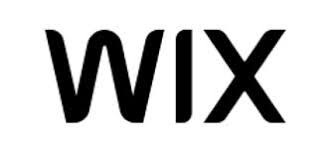8 Best E-Commerce Website Builders for Small Businesses in 2023
The best e-commerce website builder for you is easy to use and offers the features you need at an affordable price.

Many, or all, of the products featured on this page are from our advertising partners who compensate us when you take certain actions on our website or click to take an action on their website. However, this does not influence our evaluations. Our opinions are our own. Here is a list of our partners and here's how we make money.
An e-commerce website builder can help you open an online store, whether you sell physical products, services or digital goods. Some of these platforms are robust and can book appointments, take payments and manage multiple selling channels. Others let you create an e-commerce website in minutes.
The best e-commerce website builders are affordable, scalable and user-friendly. But the right choice for you will depend on your comfort level with tasks like coding and your business needs. Here are our recommendations for platforms to build an e-commerce store.

Best e-commerce website builders at a glance
| E-commerce website builder | Price | Best for | NerdWallet's review |
|---|---|---|---|
| Shopify | Starts at $29 per month. | All-in-one e-commerce website building. | |
| Square Online | Free plan available; paid plans start at $29 per month. | Free e-commerce website building for Square POS users. | |
| Squarespace | Plans with e-commerce features start at $23 per month. | Businesses that want to offer appointment booking or subscriber-only content. | |
| Wix | Starts at $27 per month. | Highly customizable e-commerce websites. | |
| BigCommerce | Starts at $29.95 per month. | Omnichannel selling. | |
| Shift4Shop | Free if you process at least $500 per month using Shift4 payments. | Businesses that use Shift4 for payment processing or do business-to-business sales. | |
| WooCommerce | Free, though you’ll need a WordPress plan that supports it. Those plans start at $25 per month. WooCommerce comes built into WordPress Commerce, which costs a minimum of $45 per month. | Businesses already running websites on WordPress. | We haven’t reviewed WooCommerce yet, but you can read our WooCommerce vs. Shopify head-to-head comparison. |
| Big Cartel | Free plan available; paid plans start at $9.99 per month. | Micro businesses or those that want to offer just a handful of products for a limited time. |
Shopify: Best all-in-one e-commerce website builder
Shopify says it hosts millions of online stores, making it one of the market leaders for those looking to start an e-commerce business. Shopify can help you set up a storefront quickly, and on top of that, it offers plug-and-play solutions for everything from inventory management to payment processing.
Shopify Ecommerce |
Who should use Shopify: Businesses that sell physical products, do most of their sales online and value convenient, all-in-one solutions. Read NerdWallet's review of Shopify.
Where Shopify stands out
An easy e-commerce website builder: Shopify allows you to create your e-commerce store with a drag-and-drop builder, so there’s no coding knowledge required. It offers themes, which are plug-and-play store designs that you can customize as much or as little as you want. You can also pay a Shopify Expert for help.
All-in-one solution: After you’ve built your e-commerce website, Shopify offers additional features like:
- Web hosting.
- Shopify Payments, which lets you accept credit and debit card payments in your online store without needing to work with a third-party payment processor. This includes mobile card readers to accept in-person payments.
- Inventory management.
- Shipping, fulfillment and returns.
- Integrations with social media platforms.
- Email marketing tools.
Unlimited products: Shopify’s pricing starts at $29 per month when billed annually ($39 when paying month to month) plus credit card transaction fees. But even with that starter plan, you get unlimited product listings.
Where Shopify falls short
No native way to take appointment bookings: You’ll need to use a third-party app to book online appointments, which may mean Shopify isn’t a great fit for businesses that provide services.
Additional fees if you use a different payment processor: If you use Shopify Payments, you’ll only pay that service’s transaction fee, which starts at 2.9% plus 30 cents per transaction for Basic plan customers. But if you use another payment processor, like Square or Stripe, Shopify will charge you an additional percentage fee — as high as 2% per transaction for Basic plan customers.
Payment processors typically charge 1.5% to 3% plus a small fixed fee per transaction. Using Shopify with a different payment processor could mean you’re paying around 5% of each sale in transaction fees.
Square Online: Best free e-commerce website builder
Square Online is a simple, user-friendly e-commerce website builder, especially if you already use Square for in-person sales at your business’s brick-and-mortar location. It’s also one of few free e-commerce website builders. Its customization options and B2B sales features are limited, though, and you’ll have to process payments through Square if you use Square Online.
Who should use Square Online: Brick-and-mortar businesses that want to create an online store. Read NerdWallet’s review of Square Online.
Where Square Online stands out
Integration with Square products: Square Online integrates with Square’s point-of-sale system, which is highly rated by NerdWallet for its simple pricing and many features, including appointment scheduling and loyalty programs.
Free: Square Online’s free version offers its website builder, POS integration, social media integration and payments.
You can use your brick-and-mortar location: In addition to shipping products to your customers’ doorsteps, Square Online allows you to offer free in-store pickup or third-party local delivery.
Where Square Online falls short
No option to use a different payment processor on the free plan: Square Online free users have to process payments through Square. Customers paying a monthly fee have the option to accept PayPal.
Limited features for high-volume sellers: Like Shopify, Square Online offers unlimited product listings. But it doesn’t offer Shopify’s more advanced B2B features — for wholesale purchases, for instance — or its sophisticated customer segmentation tools. You’ll also have to pay at least $15 extra per month to use Square’s email marketing features, many of which are included in Shopify’s basic plan.
Wix: Most customizable e-commerce website builder
Like Square and Shopify, Wix is a beginner-friendly e-commerce website builder. You won’t need any code to use its drag-and-drop tools. But while Shopify is product-focused, Wix offers a variety of features for different types of businesses, from ticket sellers to dropshippers.
Wix |
Who should use Wix: Businesses that want to use their choice of payment processor and want a website that looks custom. Read NerdWallet’s review of Wix.
Where Wix stands out
Easy to build a website that looks custom: Wix offers more than 500 themes for users’ websites. Once you choose one, you can customize it using drag-and-drop tools.
Support for a variety of business models: In addition to creating product listings, you can use Wix apps to sell subscriptions to exclusive content, tickets and more. Wix offers dropshipping and print-on-demand features and even supports subscription boxes.
Your choice of payment processor: Wix offers its own payments solution, but you don’t have to use it. Instead, you can choose the best credit card processing company for your business and Wix won’t charge any additional fees.
Where Wix falls short
Third-party integration for multichannel sales: Wix supports sales on marketplaces like Amazon, Instagram and Facebook. But you’ll need to use apps to support these integrations. App-based integrations can work well, but direct integration is typically a better choice since a third-party app is additional software that you’ll need to understand and troubleshoot if something goes wrong.
Limited storage: While most of our picks offer unlimited server space for your website’s assets — even on their entry-level plans — Wix is an exception. Its Basic plan includes just 50 GB of storage and five hours of video, which could limit how much you can do before you have to upgrade your plan.
BigCommerce: Best for omnichannel e-commerce sales
E-commerce businesses that pursue omnichannel commerce — selling products on a variety of platforms, with one centralized system for managing inventory, payments and other functions — should consider BigCommerce. The service offers integrations with a number of different online sales channels, and all plans include unlimited file storage and user accounts. Each pricing tier comes with a cap on annual sales, though.
Who should use BigCommerce: Businesses that sell primarily on social media platforms and online marketplaces instead of their own websites. Read NerdWallet’s review of BigCommerce.
Where BigCommerce stands out
Omnichannel integrations: BigCommerce includes integrations with eBay, Amazon, Google Shopping, Facebook, TikTok, Walmart, Instagram and more.
Unlimited user accounts and file storage with all plans: Everyone who needs access to your BigCommerce dashboard can have it with unlimited user accounts. And unlike with a platform like Wix, you won’t be limited in the amount of content you can publish to your website.
Discounted credit card processing with Braintree for Plus, Pro and Enterprise users: If you choose Braintree as your payment processor, you’ll pay fees starting at 2.59% plus 49 cents per transaction for Basic plan customers — which is Braintree’s usual payment processing rate. However, fees start to drop at BigCommerce's Plus level, and they can fall below 2.05% plus 49 cents per transaction for Enterprise customers.
Where BigCommerce falls short
Maximum annual sales volume: The biggest drawback of BigCommerce is that its plans are limited by annual sales volume. If you exceed the limit for annual sales, you'll be required to upgrade to a more expensive plan.
Very few free themes: BigCommerce offers very few free design themes, and some of the paid options can get expensive — up to $399. Other website builders like Wix and Squarespace offer more themes at more affordable rates.
Squarespace: Best website builder for selling digital services
Squarespace is a popular website builder, but its product sales features are limited compared with other options. However, you can use Squarespace tools to create a gated membership website and take prepayments for online appointment booking, making it a good choice for businesses that sell services or content.
Who should use Squarespace: Businesses that primarily want to sell digital or in-person services. Read NerdWallet’s review of Squarespace.
Where Squarespace stands out
Sophisticated online appointment booking: When customers book your time on your Squarespace website, they can see your calendar and reschedule appointments on their own. You can receive notifications about new appointments, send reminder emails and sync appointments with your existing digital calendar. You can even set up intake forms that clients can fill out before they meet with you.
Exclusive “Member Areas” for paying customers: Squarespace can help you wall off part of your website so only paying customers can access your online courses or premium content.
14-day free trial: You can experiment with Squarespace for up to two weeks before you have to enter your credit card information.
Where Squarespace falls short
No direct integration with other sales channels: Squarespace’s e-commerce website builder doesn’t integrate directly with marketplaces like Amazon or Google. If you sell on those platforms, you’ll either have to find a third-party plug-in to create those integrations or list products manually.
Basic product selling features: Squarespace includes the product sales features you’d expect from an e-commerce website builder, including inventory management with low-stock notifications, shipping-label printing and in-store order pickup. But it stops short of the sophisticated inventory management and shipping tools that e-commerce platforms like Shopify and BigCommerce offer.
Shift4Shop: Best e-commerce website builder for B2B businesses
Like Shopify and BigCommerce, Shift4Shop — formerly 3dcart — is an all-in-one e-commerce website builder for businesses. It’s owned by Shift4, a payment processing company, and free for users who process at least $500 per month in sales using that software. But its feature list may be overwhelming for the smallest businesses.
Who should use Shift4Shop: Businesses that do most of their sales online and can fully use the platform’s many advanced features. Read NerdWallet’s review of Shift4Shop.
Where Shift4Shop stands out
B2B features: Shift4Shop is among the best B2B e-commerce platforms, offering sales features like custom pricing for specific customers, wholesale pricing tied to different quantities and individual price lists for recurring customers. The platform also allows you to accept paper checks, money orders and other B2B payment methods.
Free for some sellers: Instead of offering tiered pricing, Shift4Shop is free if you process at least $500 per month in payments using Shift4. If you use PayPal, you’ll pay $29 per month.
Pre-orders: Shift4Shop can facilitate pre-orders, which can help you develop the right amount of inventory and generate capital before a product is released. The company says this feature can be used for event tickets and crowdfunding, too.
Where Shift4Shop falls short
More difficult to use than other options: Shift4Shop may not be the right e-commerce website builder for beginners, since the number of features the platform offers may be overwhelming to sellers who are just getting started or who run very small businesses.
Minimum sales volume required: For Shift4Shop to be free, you’ll need to process at least $500 in transactions every month. If your business is still growing or your sales are inconsistent, you may have to pay a fee after all.
WooCommerce: Best e-commerce plug-in for WordPress users
WooCommerce is a plug-in that you can use to add an online shopping cart to your WordPress website. WooCommerce lets you choose a theme, customize your checkout pages, send abandoned cart emails, offer coupons and customer rewards and more. While WooCommerce is free, you’ll need a WordPress plan that supports plug-ins — which starts with the Business plan at $25 per month.
Who should use WooCommerce: Businesses that already run on WordPress and have a staff web developer who can take advantage of WooCommerce’s many features. Here’s how WooCommerce compares to Shopify.
Where WooCommerce stands out
Variety of payment options: WooCommerce’s shopping cart accepts credit and debit cards and digital wallets, in addition to cash on delivery, bank transfers and checks.
Omnichannel commerce and advertising: WooCommerce offers plug-ins that can help you list your products on Pinterest, Amazon, eBay, Etsy and other platforms. You can also use plug-ins to place ads on Facebook, Google and TikTok.
Discounted shipping rates: WooCommerce Shipping users can print U.S. Postal Service and DHL shipping labels and qualify for discounts for free.
Where WooCommerce falls short
Significant setup work: You’ll need to build a WordPress website first, then set up your WooCommerce store. Both platforms are highly customizable, which may feel overwhelming for users without web development experience. A platform like Shopify or Square Online, which lets you build a store right away, might be easier for some users.
Plug-ins may mean additional fees: Some WooCommerce features are provided by plug-ins. Many of these are free, but some — especially those developed by third parties — may come with additional subscription fees.
Big Cartel: Best for very limited inventory
If you’re a micro business or only want to sell a few different products at once, Big Cartel may be sufficient for you. On the free plan, you can list up to five products, including different colors and sizes. You’ll be limited to just one image per product, though. If you decide to pursue e-commerce as an ongoing line of business, consider upgrading to a more robust service.
Who should use Big Cartel: Businesses that operate very small e-commerce stores, like artists and solopreneurs who offer limited runs of each product. Read NerdWallet's review of Big Cartel.
Where Big Cartel stands out
Payment processing with Stripe and PayPal: Big Cartel offers built-in payment processing through Stripe and PayPal, both market leaders. Stripe will charge a fee of 2.9% plus 30 cents on each transaction, and PayPal takes 3.49% plus 49 cents on each transaction.
Automated sales tax: Big Cartel relies on TaxJar, a third-party app, to calculate sales tax for each of your customers based on their location. You can categorize products in case tax rates vary for certain types of goods. Then, TaxJar pays those taxes to the state or local government so you don’t have to.
Discount codes: You can use Big Cartel to offer discount codes that reduce prices or provide perks like free shipping, and you can limit discount codes to certain items or order amounts.
Where Big Cartel falls short
Limited product images: On Big Cartel’s free plan, you can only list one image per product. Even on paid plans, you’ll be capped at five images per product. You can embed videos on your product pages, but not as images in the listings.
Big Cartel in your domain name: Big Cartel customers get a Big Cartel domain name that looks like “MyStore.bigcartel.com.” If you want to remove “bigcartel” from the URL, you’ll have to buy your own domain name from a separate service — either Google Domains, which you can access through your Big Cartel dashboard, or the third-party service of your choice. Many other e-commerce website builders offer a unique URL with your subscription, and may cover its registration costs at least for a year.
How to choose an e-commerce website builder
The best e-commerce website builder for your business offers the features you need, costs a price you can afford and fits for your digital skill level. Here’s how to determine which option checks the right boxes for you.
1. Determine which features you need
- What types of products do you sell? If your business makes and sells physical products, you may not need a platform that can help you sell tickets to events. If you provide services for a fee, appointment booking will be necessary but low-stock notifications may not be.
- Do you want business management support? Most e-commerce website builders offer inventory management, shipping label printing, marketing and other tools that can help you run your business. The smaller your business is, the more convenient it can be to use your platform’s built-in tools rather than shopping around for inventory management software and other solutions.
- How do you want your website to look? If you want to launch your website as quickly and easily as possible, choose a builder that is easy to edit and offers plug-and-play designs, like Shopify or Wix. But if you have design experience and want to fully customize your online store, a provider like Shift4Shop might be a better fit.
- Will you outgrow your website? It's possible to switch e-commerce platforms, but it’s not easy. Try to choose an option that’s likely to support your business for years into the future. For instance, if you’re building your brand now, Squarespace might look like a good choice — but if your goal is ultimately to sell products on multiple channels, it may not remain the right one.
2. Price out your options
- How much are the monthly fees? Make sure the subscription level you’re considering offers the features you need right now and also fits into your business’s budget. Note that you can always upgrade in the future as your business grows.
- What will you pay for payment processing? Online credit card processing rates are one of the biggest costs associated with e-commerce websites. Some e-commerce website builders include payment processing. That can be convenient, but you’ll be locked into their service or face additional fees for using a third party. Other platforms require you to choose your own payment processor, which may help high-volume businesses save money but requires additional research.
3. Consider your skill level
- How comfortable are you building your website? Setting up an online store takes time, but the learning curve shouldn’t feel impossibly steep. Choose a website builder appropriate for your skill level, even if it means the website won’t look exactly the way you imagined. If you want to offload the work completely, many of the website builders on this list offer the option to pay one of their in-house experts to build your website for you.
- Do you find the software easy to use? Rich business management features aren’t helpful if you can’t figure out how to use them. Use free trials to explore dashboards and features you plan to use, like inventory management or ticket sales, to make sure they won’t be an ongoing source of frustration.
Frequently Asked Questions
What is the best e-commerce website builder?
Shopify is our pick for the best all-in-one e-commerce website builder because it offers a wide variety of features at a competitive price. But if your business has specific priorities — like business-to-business sales, appointment booking or selling on third-party platforms — you may want to explore other options.
What are the best free e-commerce website builders?
Square Online is our pick for the best free e-commerce website builder because you can list an unlimited number of products. Other free e-commerce website builders include Big Cartel, Shift4Shop, Ecwid and Freewebstore.
What is an e-commerce website?
An e-commerce website is an online storefront for your business. Customers can use it to browse your products, add them to their online shopping cart and pay for them. On the back end, most e-commerce website builders offer a dashboard that you can use to track inventory levels and manage customer orders.
How do I build an e-commerce website?
You can build an e-commerce website using a platform like Shopify, Squarespace, Square Online or Shift4Shop. These e-commerce website builders let you create a website and, in most cases, buy a domain. Then, you can set up an online store and fill it with your products.
How much does it cost to build an e-commerce website?
Most e-commerce website builders charge a monthly subscription fee, and plans typically start around $25 to $30 per month. You’ll have to pay more for plans with additional features, but you can save money by signing up for annual rather than monthly billing. On top of that, your payment processing company will take a fee from each transaction — usually around 3% of each sale.
A version of this article originally appeared on JustBusiness, a subsidiary of NerdWallet.
Article sources
NerdWallet writers are subject matter authorities who use primary,
trustworthy sources to inform their work, including peer-reviewed
studies, government websites, academic research and interviews with
industry experts. All content is fact-checked for accuracy, timeliness
and relevance. You can learn more about NerdWallet's high
standards for journalism by reading our
editorial guidelines.
Related articles








